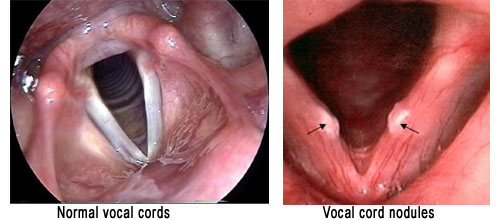Speech and Voice Disorders

Children often present with speech delay, articulation problems or voice changes (hoarseness or weak voice). Speech delay is not uncommon in infants and toddlers, and may represent a wide range in developmental progress among children of the same age. Hearing loss may present with speech problems, as the child is unable to receive the proper “auditory information” necessary for speech development. It is important to perform a detailed ear examination and audiologic evaluation in children with speech delay. The providers at New England ENT offer the full range of audiometric evaluation including threshold testing, tympanometry and OAEs (Otoacoustic emissions).
Speaking is a physical task that requires coordination of breathing with the use of several muscle groups. It should come as no surprise that, just like in any other physical task, there are efficient and inefficient ways of using your voice. Excessively loud, prolonged, and/or inefficient voice use can lead to vocal fatigue, increased vocal effort, and hoarseness. Voice misuse and overuse can also lead to the development of benign vocal cord lesions (nodules, cysts and polyps) or a vocal cord hemorrhage. Other conditions causing voice changes include vocal cord paralysis, congenital anomalies of the larynx (laryngeal webs, clefts and hemangiomas), laryngopharyngeal reflux (reflux of stomach acid into the throat), laryngeal tumors (such as papillomas) and neck trauma. We offer comprehensive evaluation of voice disorders using videostroboscopy and pharyngeal ph probe testing (for layrngopharyngeal reflux).
We also work in concert with Speech-Language pathologists, who specialize in the evaluation and treatment of speech, language, voice, cognitive-communication and swallowing disorders.
In children, most hoarseness has a benign or self-limiting cause (vocal abuse or misuse) and is usually managed with education, watchful waiting, treatment of allergies and reflux, and voice therapy.

